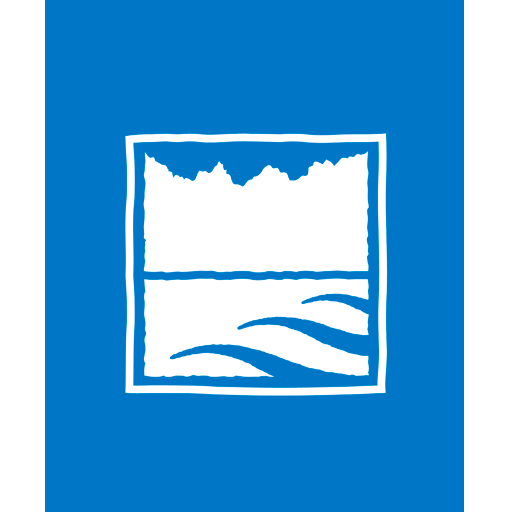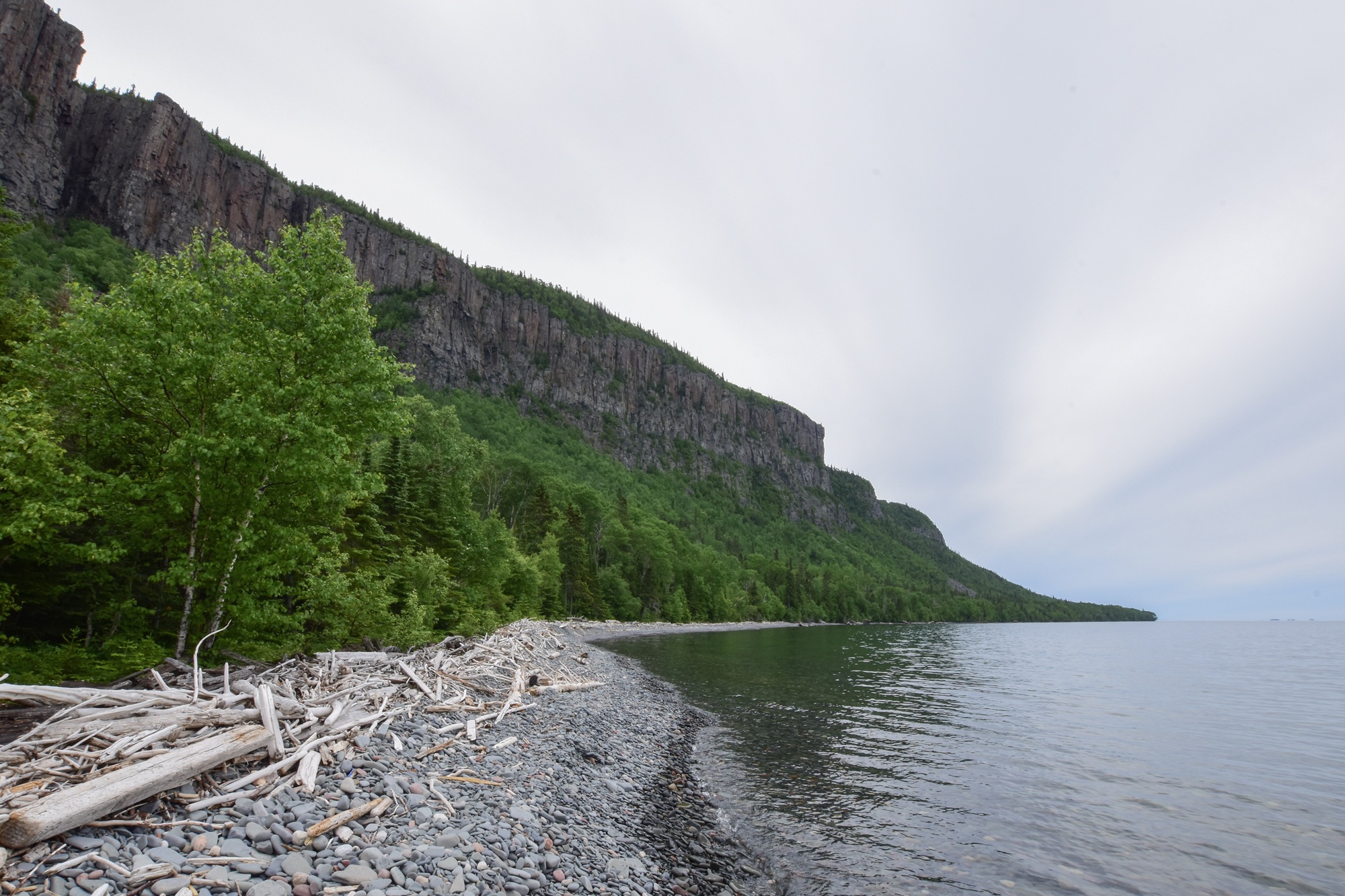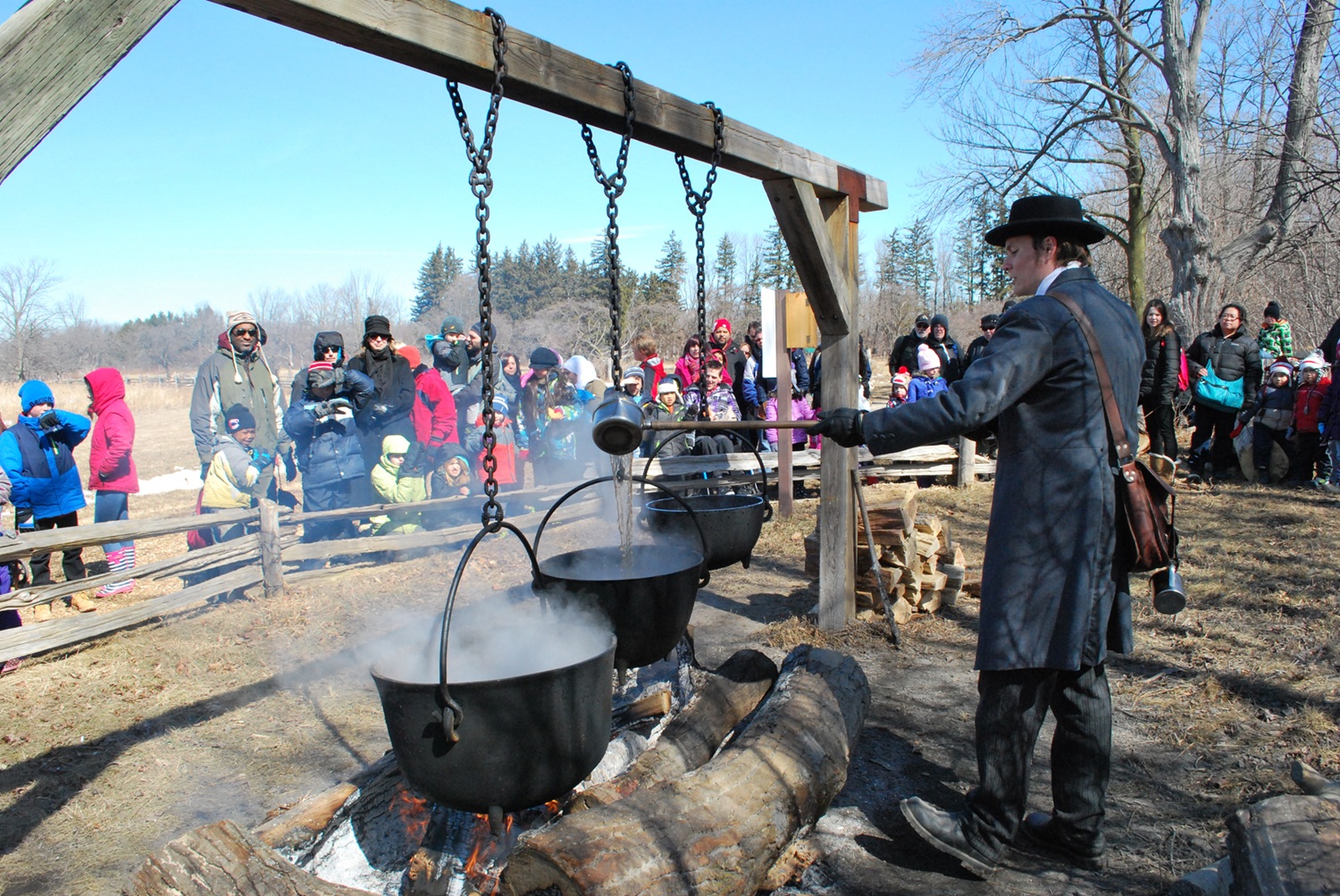
Today’s post comes from Alistair MacKenzie, Resource Management and Discovery Supervisor at Pinery Provincial Park.
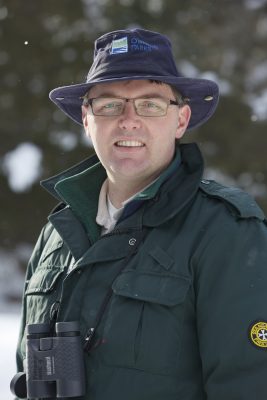
As we begin a brand-new year, many of us make personal resolutions to try to better ourselves or to help our families and communities.
I’ll be making several personal resolutions (darn sour cream-glazed doughnuts!), but in addition, I am choosing 2026 as the year to make some resolutions for parks and protected areas.
As I work and play in Ontario Parks’ many incredible landscapes, most of my efforts will take effect there, but I am not planning on limiting my efforts…
…I’ll include any green spaces I can find!
I’m just one person, so I would encourage you to help.
You may want to create a different list for yourself, but our parks can certainly use the help, so please consider giving back to our protected areas.
So here goes, my list of ten resolutions for Ontario Parks:
1. Park once
Whenever I visit parks, I’m going to practice the “Park Once” concept to limit the use of my vehicle.
Cars and trucks contribute to air pollution. They put stress on park infrastructure, and they impose a significant impact upon animal populations through road mortality.
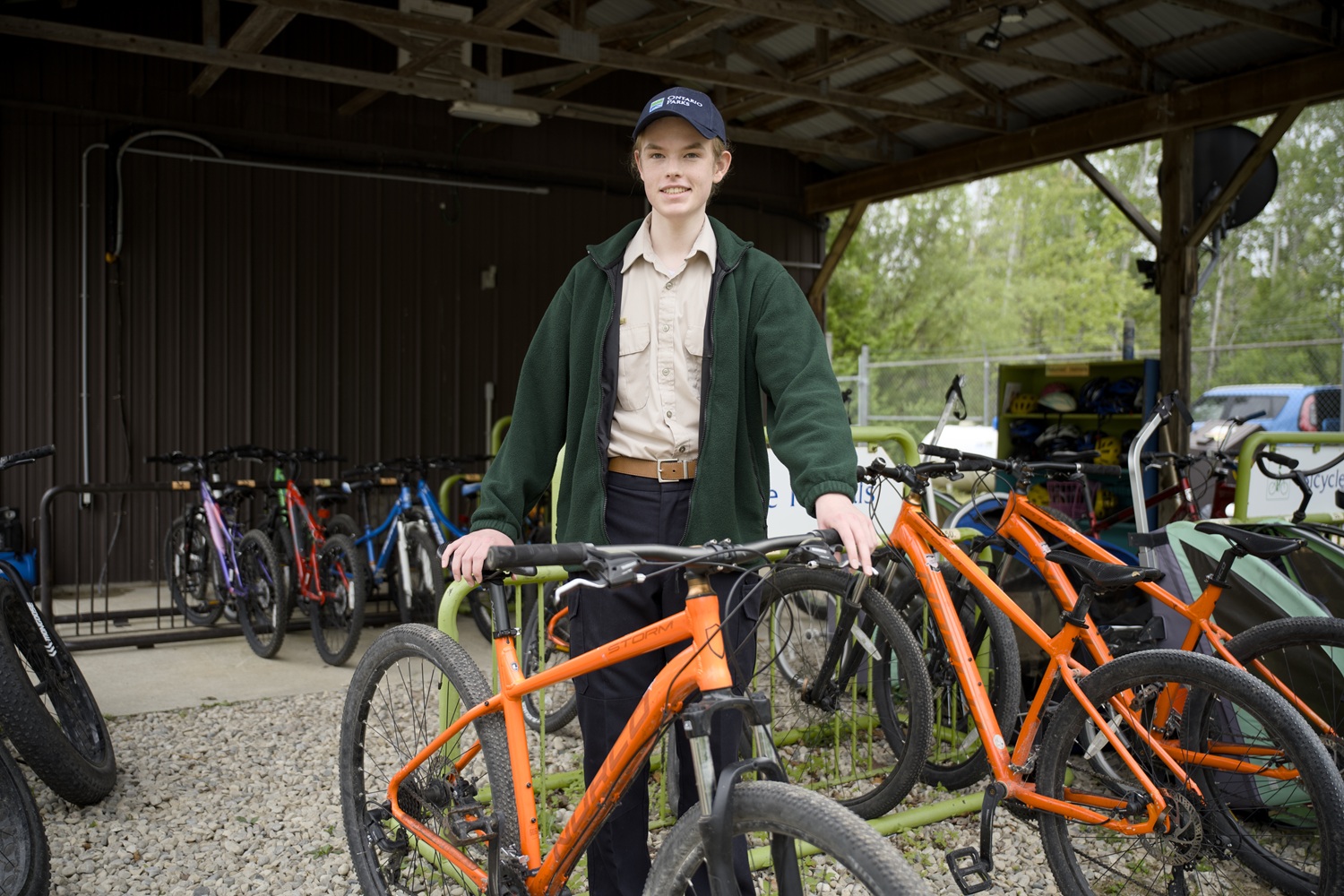
Instead, once I arrive at a park, I’ll explore more areas on foot, on my bike, and in my canoe or kayak. Don’t forget that many parks offer rental equipment, so you can rent a bike, skis, or watercraft for your exploration… and walking is free!
This resolution should also help me with some of my personal resolutions about health and wellness.
2. Get “Friend”ly
I’m going to renew my membership with The Friends of Pinery Park and whenever I visit other parks, I will consider membership with their Friends group (or, at the very least, purchase a raffle ticket for their charity raffles).
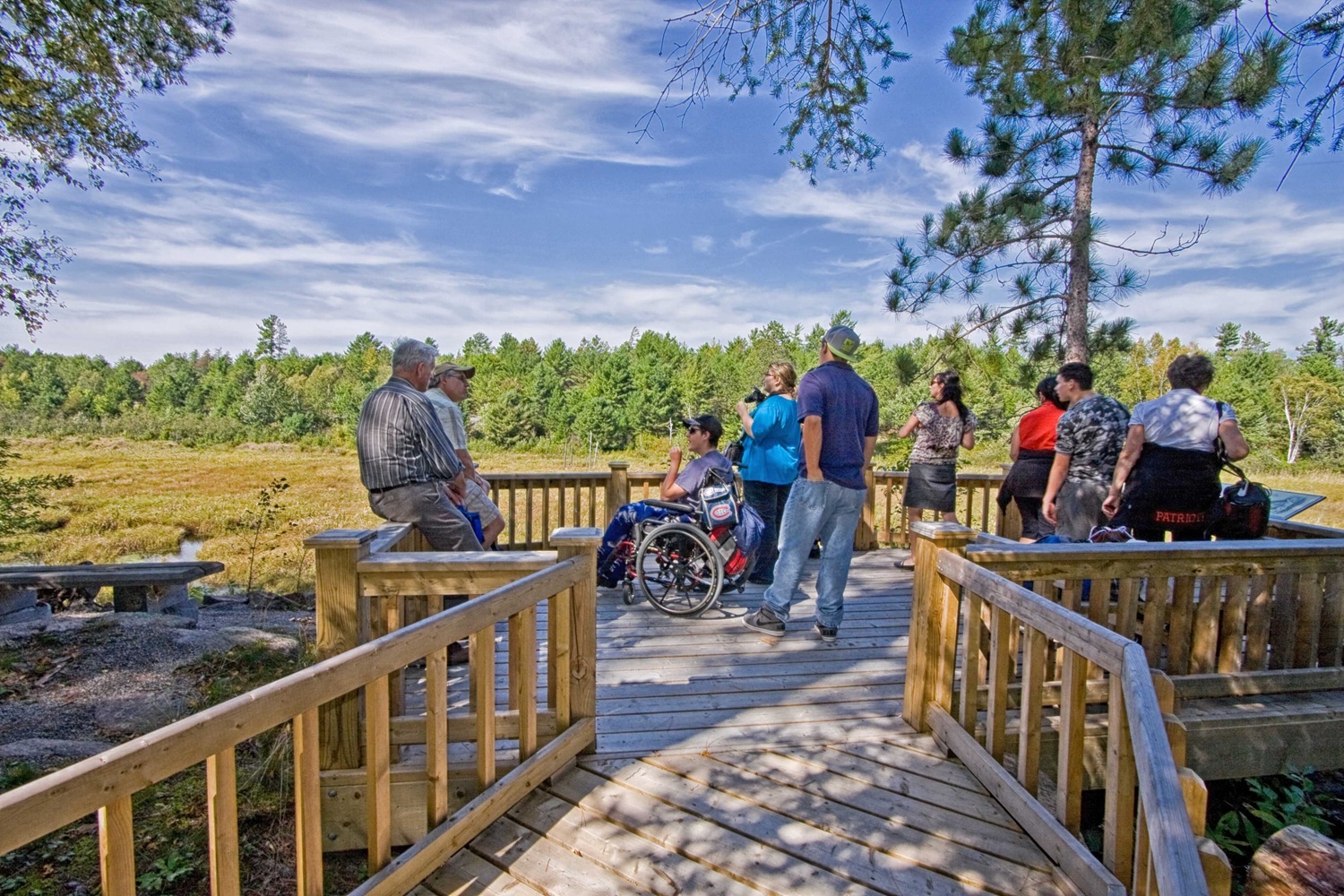
Friends of Parks are non-profit organizations that supplement and enhance the educational, recreational, and resource protection activities provided by Ontario Parks, such as organizing park cleanup or obtaining grants for park projects.
Friends operate largely with volunteer support, so I’m going to lend a hand through financial and other support to help them in their efforts.
3. Practice community science
The old adage that “many hands make light work” couldn’t be more appropriate for community science.
There are many dedicated staff who work for Ontario Parks and the Ministry of Environment, Conservation and Parks, but with a landscape of parks twice the size of Switzerland, the work of inventorying and monitoring our shared lands is immense.
I’m making a resolution to observe, record, and report every species and natural phenomenon I witness during my travels this year.
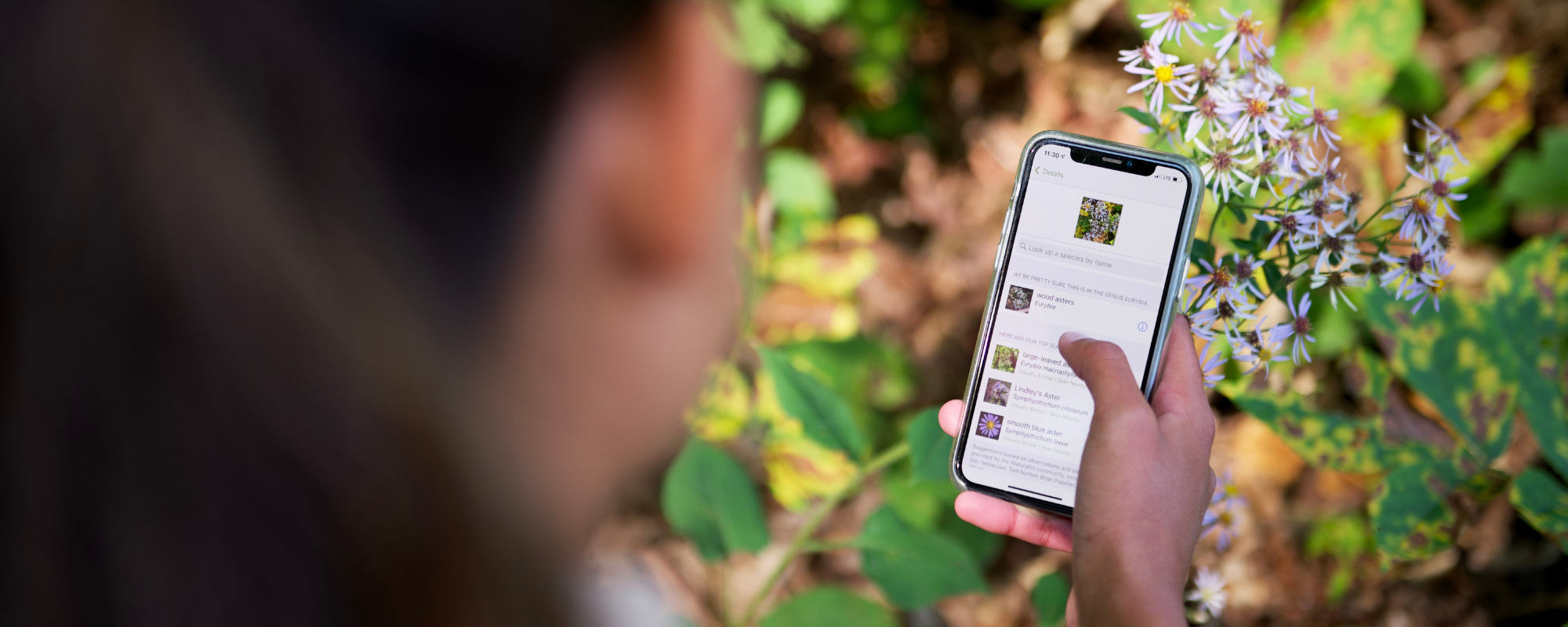
I’ll make use of the many existing community science initiatives that are available (check out our iNaturalist projects, Ontario Nature Reptile and Amphibian Atlas, or our post on community science). Whenever I’m in Pinery, I’ll use the Explore Pinery app that the Friends of Pinery helped produce.
Reporting your observations helps us build a database of information that will inform park management, species-at-risk recovery efforts, research projects, and infrastructure projects. Despite the volume of effort already invested, we know relatively little about where species occur in our parks and even when we do…more data makes for better decisions!
4. Pick it up
Whenever I visit parks, I’m going to come back with at least ten pieces of litter. It seems there’s a never-ending supply of garbage in our parks, especially on our beaches and coastlines.
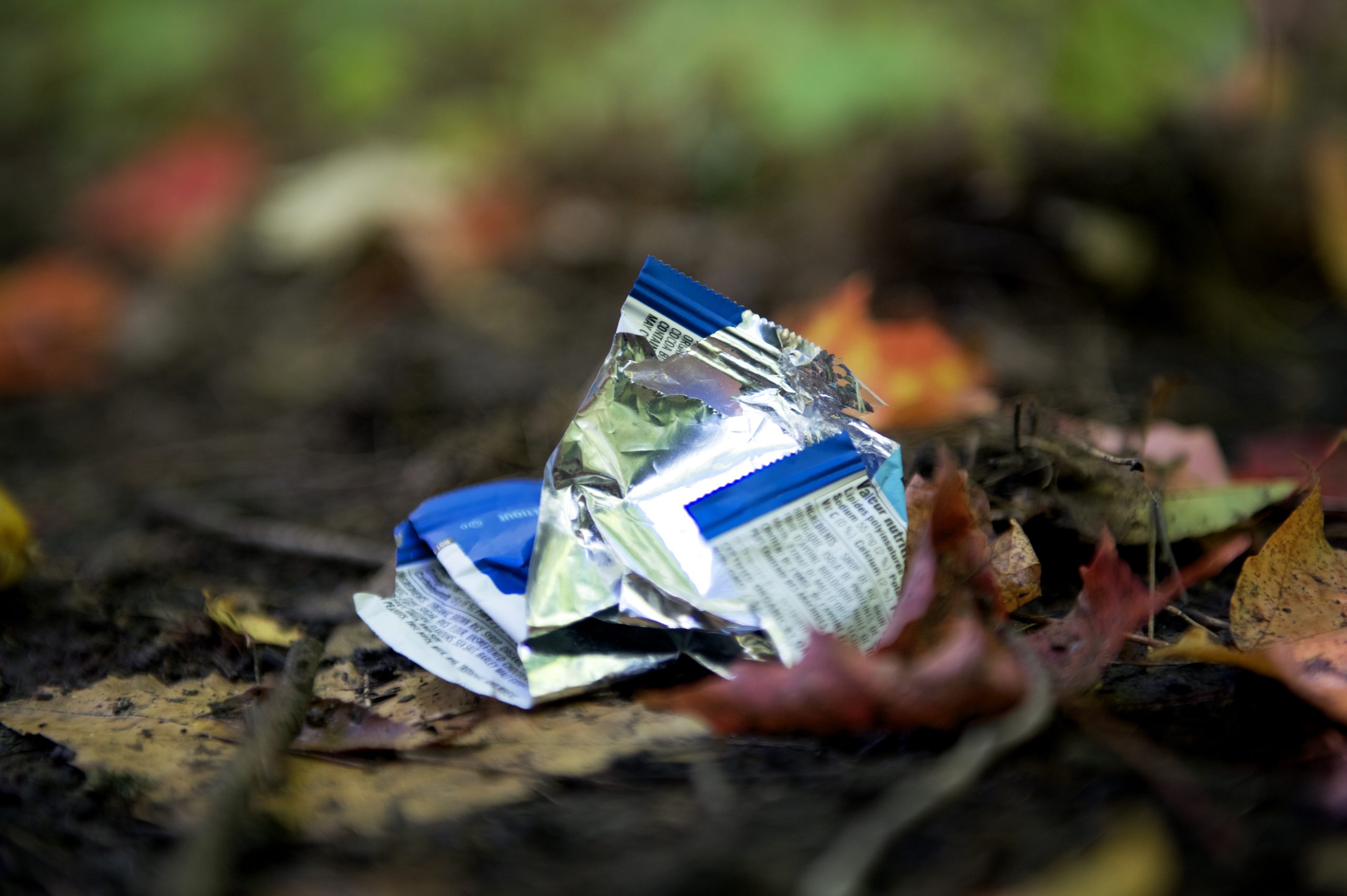
I’m going to make sure it isn’t there when you visit the day after me. If we all did that, our parks would be healthier.
When you visit parks, please make sure garbage and recycling is put in its place or consider taking the waste you create home with you.
5. Invest in kids
I have two growing boys of my own who love parks, but I’m going to make a resolution to get more kids out to parks to experience nature and witness some of the wonders our parks have to offer.
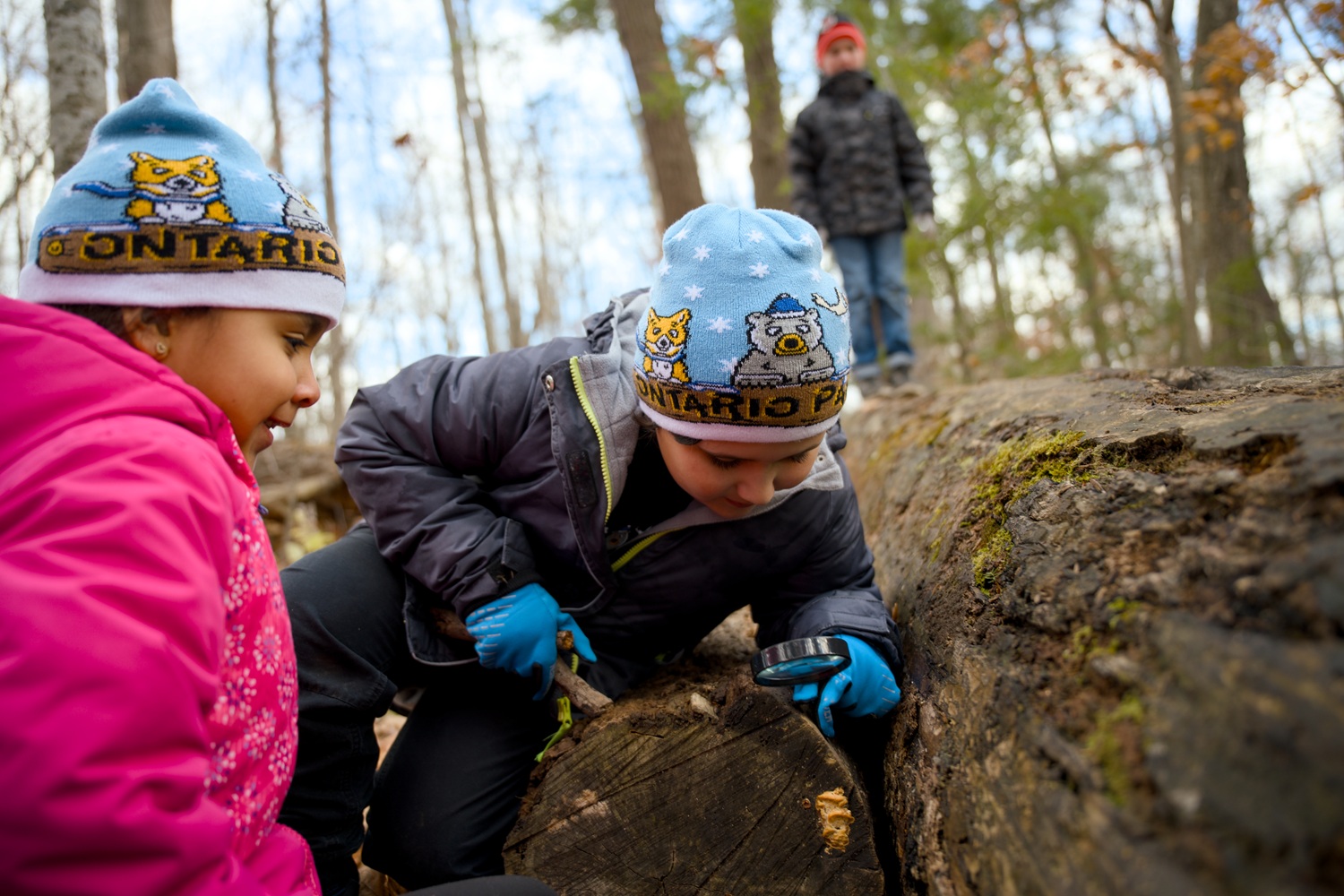
If you are an educator, check out our Discovery team’s virtual programs and request a booking to bring nature into your classroom.
6. Stay on the trail
When I visit parks, I’m going to stay on official trails. A lot of planning goes into how to offer sustainable recreation while still meeting the primary objective of protecting the ecological integrity of parks.
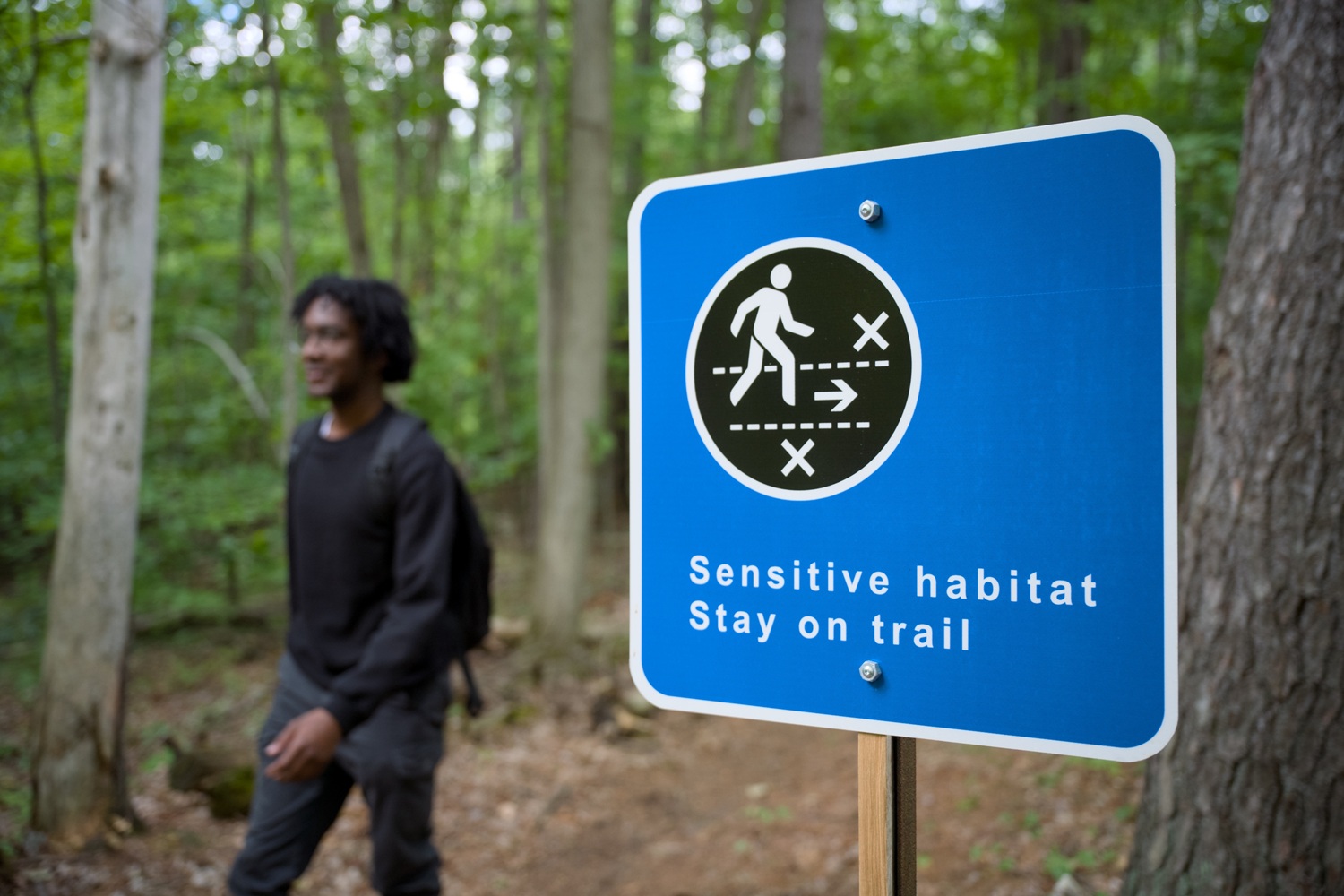
Staying on designated trails ensures that I don’t impact areas or species of concern. In many cases, the existing trails are in the best locations to witness amazing vistas, natural events, and the power of water – I’m going to trust Ontario Parks’ choice and keep to the path.
7. Respect personal space
I’m sure that for almost all of us, one of the most important reasons for visiting parks is to see wildlife. I’m making a resolution to give wildlife the necessary space they require when I encounter them.
In today’s age of digital photography and video, it is exciting to encounter a moose, Black Bear, or some smaller member of our biodiversity such as martens, and want to capture the encounter in full at close range.
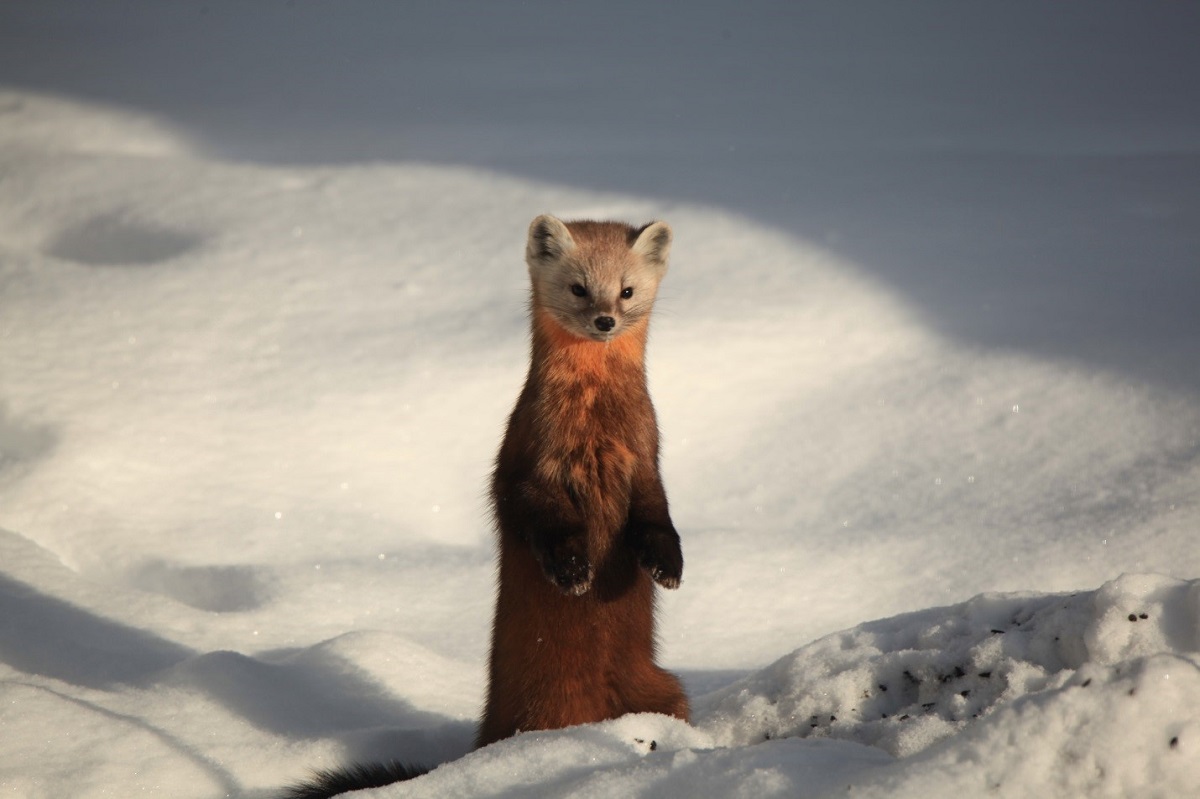
Animals are expert body language communicators, but often we can’t understand their subtle cues. Getting too close to animals causes stress and can be dangerous to us and them… and you also cause the animal to start behaving in unnatural ways.
I’m going to be sure to keep my telephoto lens at the ready and be happy with distant views of wildlife.
Let’s keep them wild and feeling free.
8. Sssshhhh
Humans are very reliant on eyesight, but I’ve been taught some amazing things by people who have vision limitations: if you stop and close your eyes in parks, you’ll be treated to the most wonderful prescription of stress-relieving sounds.
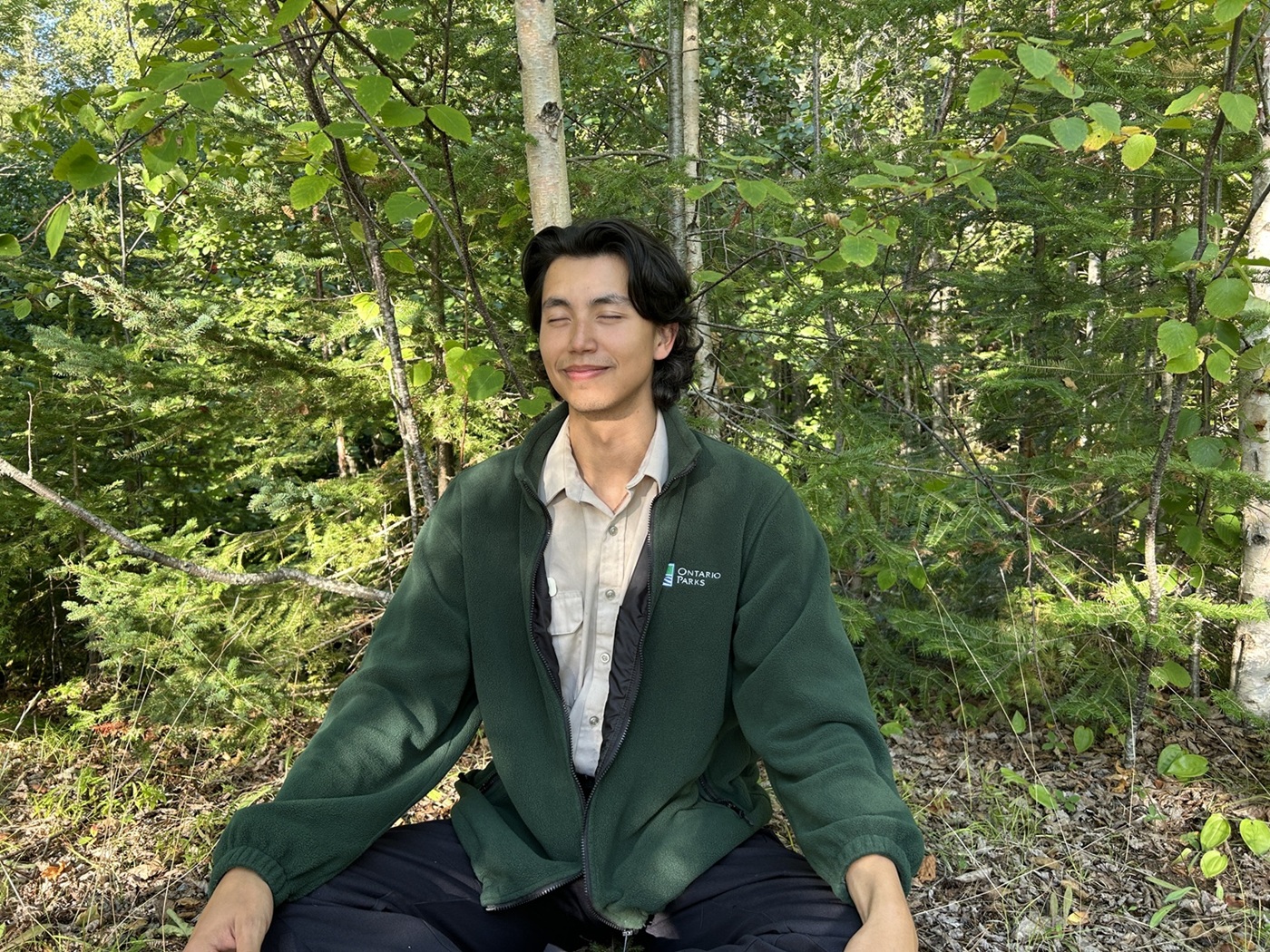
In the spring, amphibians call in a fever to try to find a mate.
Soon after, migrant and resident birds begin singing to defend their territory while struggling to raise their broods.
If you sit quietly by a fire or the shore of a lake in late summer, you may be rewarded with the soulful call of a wolf. The characteristic crunching of fallen leaves under your feet on an autumn hike and the silence of a frozen lake in February are all amazing experiences you can have with your eyes closed and your ears open.
I’m resolved to keep quiet when I’m in parks this year more than ever. I’m going to respect my fellow campers and all of nature by keeping my volume set to low.
9. Slow it down
I mentioned above that I’m going to “park once,” but I’m also going to slow down in my car. It seems that all of us are becoming busier and busier, and life is hectic.
I think when I visit parks, I often don’t fully slow down when I enter the front gate. And driving too fast in parks has so many negative consequences.
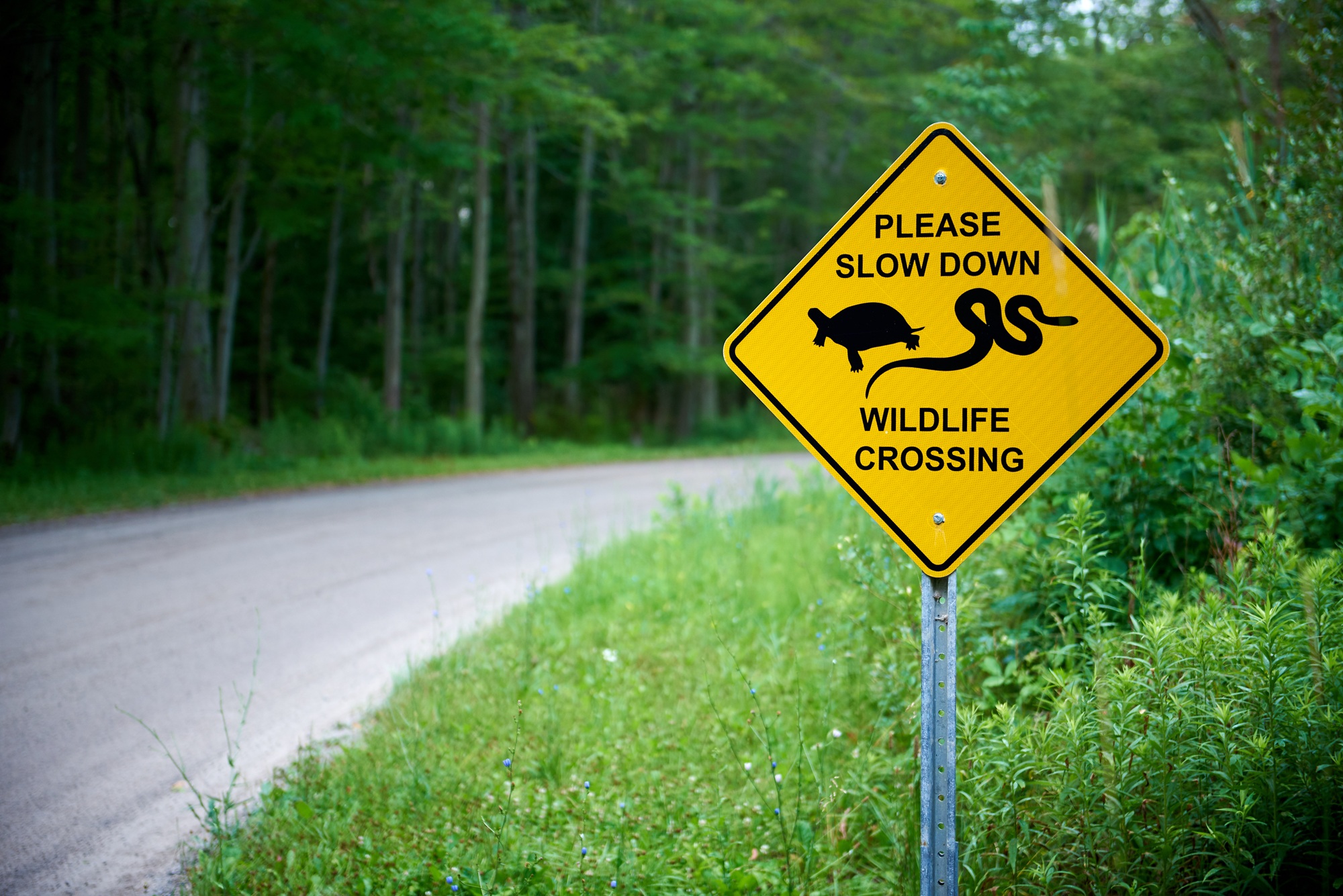
First and foremost is that we put our fellow park visitors and park staff at risk, but we also risk impacting the very elements of nature we drove so far to see.
I’m going to try to pull over when I arrive at a park. After the long drives it often takes to get to my favourite spots, I need to take a deep breath.
By driving slower, I’ll be rewarded with more incredible sights, and I’ll be protecting my fellow campers, park staff and wildlife.
10. Help, not hinder
Invasive species are becoming a bigger and bigger threat to our protected areas. I’m going to make sure I am part of the solution, not the problem, by ensuring I don’t spread invasive species.
I’ll wash my car and my bike before I visit parks, and wash my boots often or at least brush off potentially seed-containing mud from the soles. I’ll leave firewood at home and purchase it at the park.

I’ll be sure my watercraft don’t drag along aquatic invasives from lake to lake. I’ll also report invasive species to park staff when I find them (you can also use Early Detection and Distribution Mapping Services).
So far in my life, I’ve had some incredible personal experiences in parks…
This year I plan to give a little more back when I visit.
I’ll still swim and laugh, marvel at animals, and sleep under the stars, but while doing so, I’ll have a personal plan to make sure that our provincial parks are a little bit better off come January.
I hope you include parks in your own list of resolutions, and if you do – as a community member of Ontario who loves nature – I’ll offer my thanks in advance for your efforts.
